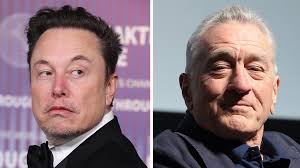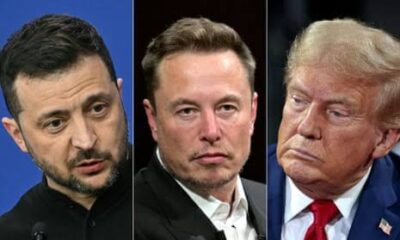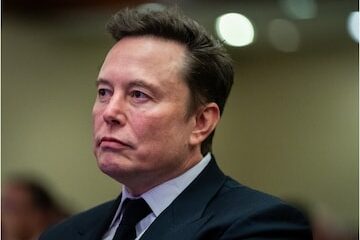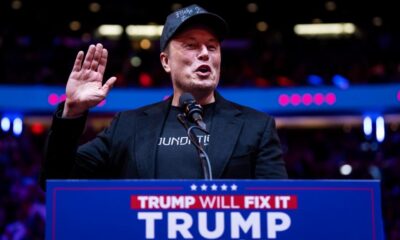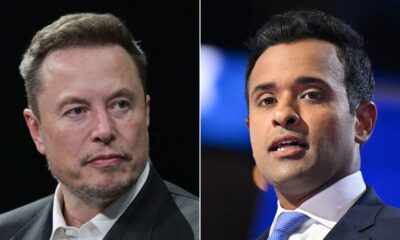NEWS
Breaking News: Elon Musk comes to terms with Hyperloop failure: Why the universe makes the vacuum train impossible…. Read More

When you think of Elon Musk, you think of ambition, power, dollars, success, innovation, evolution and the list goes on. We tend to forget that at times these prominent individuals and their projects can hit rock bottom. Elon Musk’s dream of travelling 1,000 km/h by train is fading. It is called the Hyperloop. This train once hailed as the future of transport has caused the founder of SpaceX to come to terms with the failure of Hyperloop.
Initially the goal of Musk in relation to Hyperloop One was to cut off travel times in a way that is out of this world. We know him, he always wants to set a scientific standard. Richard Branson, the founder of Virgin, had previously backed it, but he withdrew last year. With the utilisation of magnetic levitation (maglev) technology which is currently employed in certain transportation systems within a vacuum tube, the business had promised a new era of high-speed travel.
A vision out of this universe: Hyperloop’s Early Promise
Elon Musk proposed travelling through vacuum tubes in capsules in a study he published in 2013. Theoretically, the new modes of conveyance may travel up to 1,200 km/h, or nearly the speed of sound, at 1,000 km/h. By avoiding air resistance and friction, this system will go faster and more effectively than conventional train or air transport. Musk envisioned something exclusive where travelling is fast between locations such as Los Angeles and San Francisco.
When Musk opened up about this idea, investors and collaborators were excited as they felt like they could see the vision. Particularly considering Musk’s background of success in innovative technologies like SpaceX and Tesla, the Hyperloop seemed to have real promise. Who wouldn’t believe Musk? He has achieved multiple successful technological projects it was easy for the rest of the world to chip into this idea.
Science experts say that it was a waste of time and a stupid idea
Hyperloop One, one of the businesses that had raised the most money to complete the project, shut down at the end of 2023. Zeleros, a Spanish business that likewise aimed to develop the technology, declared that it will be concentrating its efforts on electric mobility and that it has let go of half of its employees. It was not a happy ending as many had high expectations to see this project come to life.
Some saw what transpired as the history of a disaster predicted. One of the system’s most vocal critics has been Carlo van de Weijer, director of Intelligent Mobility at the Technical University of Eindhoven., This is what he said,
“It is a very complicated solution in search of a problem that does not exist. Putting money into hyperloop as a serious transportation system was a stupid idea from the beginning”
Furthermore, it takes extremely sophisticated engineering to maintain the pod’s stability and the tube’s straightness at such high speeds. A magnetic levitation system, little flaws in the track, or even small curves would significantly raise the chance of derailment or accident. The safety precautions required to address these issues would either be unaffordable or impractical given current technological advancements.
The End of the Hyperloop Dream: Has Elon Musk lost all hope?
In 2020, the system was tested by two firm employees, and it was the first passenger ride utilising successful hyperloop technology. The pod’s maximum speed during the 546-yard (500-meter) test run was 107 mph (172 km/h). However, the business said in 2022 that it will shift its concentration from passenger transportation to freight transportation. Later in the year, there were additional job cuts that coincided with that shift.
By 2024 Hyperloop had closed significantly as major investors pulled out and stated that the project was irrelevant. Musk’s personal excitement for the project appeared to diminish as he focused more of his time and resources on SpaceX and Tesla. Despite being groundbreaking, the idea of vacuum trains continues to be an illustration of ambition colliding with practical limitations.
Even though the Hyperloop project hasn’t been officially shelved, its inability to take off commercially suggests that we might not be ready or able to realise this utopian vision. According to BBC, The Boring Company, founded by Elon Musk, is reportedly investigating comparable technology through subterranean tubes. Other such businesses are still developing the idea all across the world.

